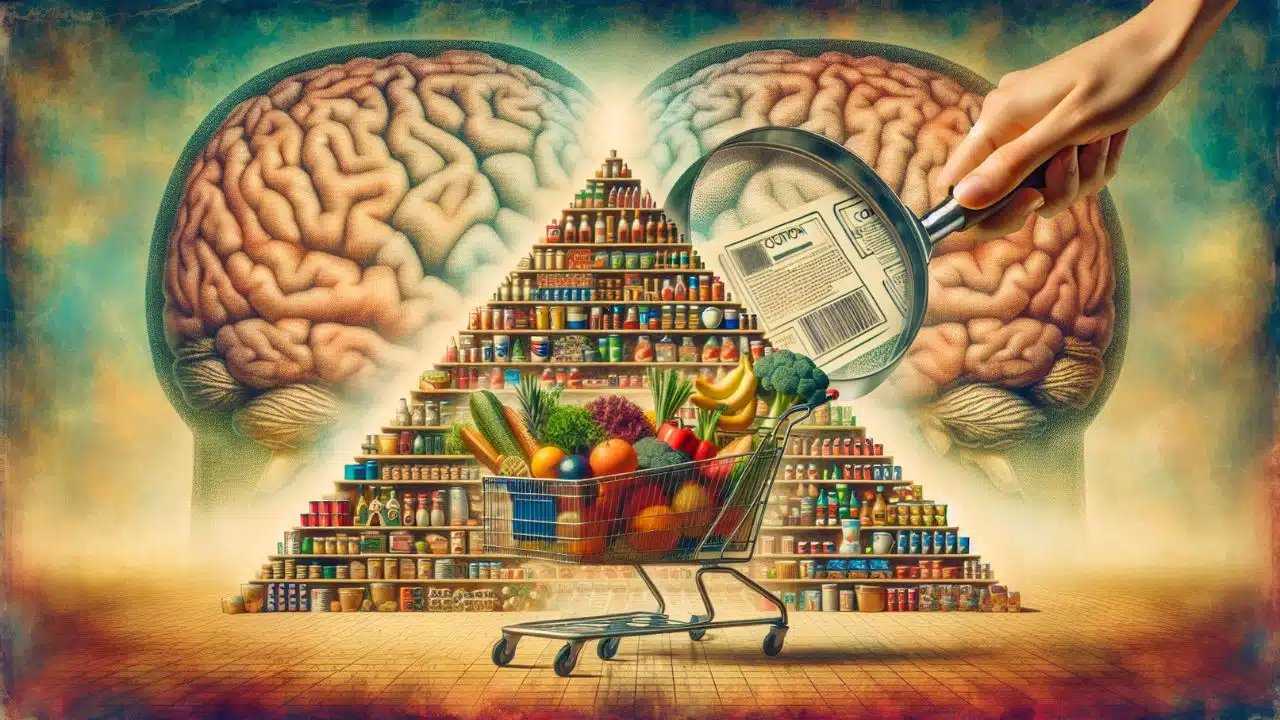By now, most avid shoppers have likely experienced the thrill of finding and using a great coupon at least once in their lives. Those little strings of numbers and letters in an email, on couponing websites, or on a piece of advertising can feel like an object of power, granting anyone the ability to bend a price tag to one’s will.
Ever stopped to wonder why coupons are so compelling? There’s a good reason why so many stores are so happy to hand them out left, right, and center. In a variety of ways, coupons do more than just save consumers a few dollars. Sure, they offer a saving, but they’re also subtly changing the way a person shops by influencing the decisions being made.
Mind games
Here’s the deal: coupons trigger reward centers in our brains. When a person sees that “SAVE $5” plastered across a box of cereal, it’s like a tiny confetti explosion goes off in their head. This little party makes them feel happy and accomplished, even before they actually buy anything. It’s the same kind of feeling a person might get when they beat a level in a video game – pure victory.
This emotional boost can be quite addictive, pushing customers to hunt for more savings even when it’s not really necessary. But they shouldn’t be seen as bad things to use. After all, they provide a way for people to get more value out of a budget. As the cost of living rises, people must use every cost-saving tool available to them.
Perceived value
A bit of paradox is at play when a person gets their hands on discounted items. Logically, it’s easy to assume a lower price might make a person think an item is less valuable. Truthfully, the opposite is more likely to be true. When a shopper enjoys a deal, they tend to value the purchase more because they see it as an achievement.
What’s going on? A little cognitive bias and a concept known as the ‘endowment effect’. Coupons can make people believe that items they own through a discounted purchase are more valuable precisely because they saved when buying them. This belief goes even further when people share their findings with friends and family.
Showing off a good deal scored through clever coupon hunting boosts the fun because it makes people feel as though they are both savvy spenders and knowledgeable shopping insiders. In this way, the experience of using a coupon is not just about the shoppers’ final haul but also the social capital gained from letting others know how clever a shopper was with their purchasing decisions.
Curbing impulsive purchases
Many coupon skeptics hold the belief that coupons offer little in the way of real value for shoppers. Believe it or not, coupons aren’t simply a way to get shoppers to spend more at specific stores. They can help a person curb impulsive purchases if used thoughtfully.
While coupons can encourage more spending to some degree, using them often requires planning a shopping trip carefully and well in advance. This planning works to disrupt those impulsive “grab and go” tendencies and can actively encourage a shopper to stick to their list.
Plus, the best coupons are for things shoppers actually need, like groceries or household essentials. This focus steers impulsive shoppers away from tempting but ultimately unnecessary unplanned purchases. Obviously, online coupons at major fashion outlets work a bit differently. Still, if a person is wise about which coupons they use, they can easily save more in the long run by avoiding spontaneous spending choices.
Smart spending
Now, a shopper might be wondering how to use coupons to their advantage. The first step is understanding how the mind works when it sees a discount. Deep down, everyone wants to save money. At the heart of all smart buying decisions is motivation. Coupons can tap into these desires and turn saving into a game that can be won. How? By keeping a person motivated to achieve their financial goals.
A well-used coupon goes beyond just saving money. It unlocks a feeling of getting more value. With the right coupons, a person is not just spending less. They’re getting a smarter deal they can feel good about. Coupons can also be powerful tools for setting and reaching specific savings targets. Need to save $20 on groceries this week? Planning a shopping list around coupons makes that goal clear and achievable. Seeing those discounts add up keeps shoppers focused and on track financially.
The bottom line
The joy of saving with a discount code or coupon is undeniable. But without careful use, they can fuel impulse purchases and irresponsible behavior. While coupons are great for saving money, they can influence spending habits and, sometimes, emotional well-being.
By understanding the psychology behind coupon use, shoppers can use their power more responsibly and more effectively, ensuring that they truly get the value they’re looking for.





































